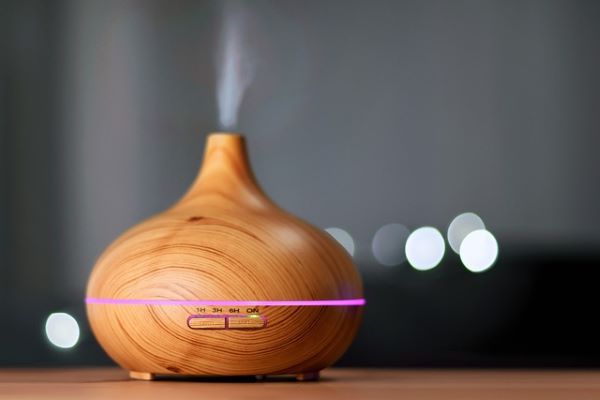Have you ever woken up in winter with a scratchy throat, dry skin, or even a nosebleed? I have, and it’s not fun. After a bit of research (and some trial and error), I discovered the humble humidifier. Could this little device be the unsung hero of winter? I decided to give it a solid 30-day trial to see how it would impact my skin and respiratory health. Spoiler: the results were eye-opening!
Also, read: 30 Days of Mindful Eating: How It Impacts Your Relationship with Food
Why Humidity Matters
Humidity is often overlooked, but it’s a big deal for your body. In the winter, indoor heating can suck the moisture out of the air, leaving your skin parched and your respiratory system struggling. Studies from the National Institutes of Health show that maintaining indoor humidity levels between 30% and 50% can prevent dry skin, reduce respiratory irritation, and even decrease the spread of airborne viruses.
Sounds promising, right? But does using a humidifier for 30 days actually live up to the hype? (Source)
My 30-Day Humidifier Journey
I started by placing a simple cool-mist humidifier in my bedroom. To be honest, the first few nights, I wasn’t sure it was doing much. But by the end of the first week, I noticed my throat didn’t feel as scratchy when I woke up, and my skin felt… softer. By the end of the month, I was a full-on humidifier convert.
Let’s break down the benefits.
1. Hydrated Skin That Glows
Winter air can be brutal on your skin, leaving it flaky and dull. Adding moisture back into the air can do wonders for hydration. Research in the Journal of Dermatological Science highlights how external hydration improves skin barrier function, reducing redness and irritation.
By week two, my moisturizer seemed to absorb better, and those annoying dry patches on my elbows and face? Practically gone. (Source)
2. Easier Breathing and Less Congestion
Ever notice how dry air makes it harder to breathe? Humidifiers help keep your nasal passages moist, which is a game-changer if you’re prone to allergies or colds.
One study from Environmental Health Perspectives found that higher indoor humidity can reduce nasal dryness and improve respiratory comfort. After three weeks, I noticed I wasn’t waking up with that stuffy nose I used to blame on the weather. (Source)
3. Improved Sleep Quality
A surprising perk? Better sleep. Moist air can reduce snoring (thank you, science!), and it’s a lifesaver if you sleep with your mouth open. My partner even commented that I sounded “quieter” at night—a win for both of us! (Source)
4. Healthier Hair and Nails
I didn’t expect this, but my hair and nails seemed to benefit too. Dry indoor air can sap moisture from your strands, leaving them brittle. By the end of the month, my hair felt less frizzy and looked shinier. (Source)
How to Get Started with a Humidifier
If you’re intrigued by the idea of adding a humidifier to your life, here are some tips:
- Choose the right type: Cool-mist humidifiers are great for year-round use, while warm-mist ones can add extra coziness in winter.
- Monitor humidity levels: Too much humidity can encourage mold growth. Use a hygrometer to keep levels between 30% and 50%.
- Clean it regularly: This is a must! Dirty humidifiers can spread bacteria and mold. Clean your device at least once a week. (Source)
FAQs About Humidifiers
1. Can a humidifier help with allergies?
Yes! Humidifiers keep your nasal passages moist, reducing irritation caused by allergens like dust and pet dander.
2. Is it safe to use a humidifier every night?
Absolutely, as long as you clean it regularly. Neglecting maintenance can lead to bacteria growth, which isn’t great for your health.
3. Will a humidifier make my room feel cold?
Cool-mist humidifiers don’t actually lower the temperature, but they might feel refreshing in a warm room. If you prefer warmth, go for a warm-mist model.
4. Can a humidifier help with acne?
While it won’t directly clear up acne, hydrated skin is less likely to overproduce oil—a common culprit behind breakouts.
5. Are there any risks to using a humidifier?
Over-humidifying can lead to mold or dust mites. Keep an eye on your room’s humidity levels, and you’ll be fine.
What Science Says
Research backs up the benefits of humidifier use. A study in Respiratory Medicine showed that increasing indoor humidity reduced respiratory infections in children, while the Journal of Allergy and Clinical Immunology found that maintaining proper humidity helped alleviate asthma symptoms.
For skin health, external hydration via humidifiers has been proven to enhance the skin barrier, reduce transepidermal water loss, and improve elasticity.
My Honest Take After 30 Days
After a month of consistent humidifier use, here’s what I noticed:
- My skin looked healthier and felt less tight.
- I didn’t wake up with a dry throat or congestion.
- My overall comfort in the house improved.
Would I recommend it? Definitely. If you’re someone who struggles with winter dryness or respiratory issues, this might just be the missing piece in your routine.
A Few Final Thoughts
Using a humidifier for 30 days may seem like a small change, but the impact on your skin and respiratory health can be surprisingly big. Whether you’re battling dry air or just looking for a way to feel more comfortable this winter, it’s worth giving it a shot.
So, are you ready to try the 30-day humidifier challenge? You might just wake up to a healthier, happier version of yourself.





